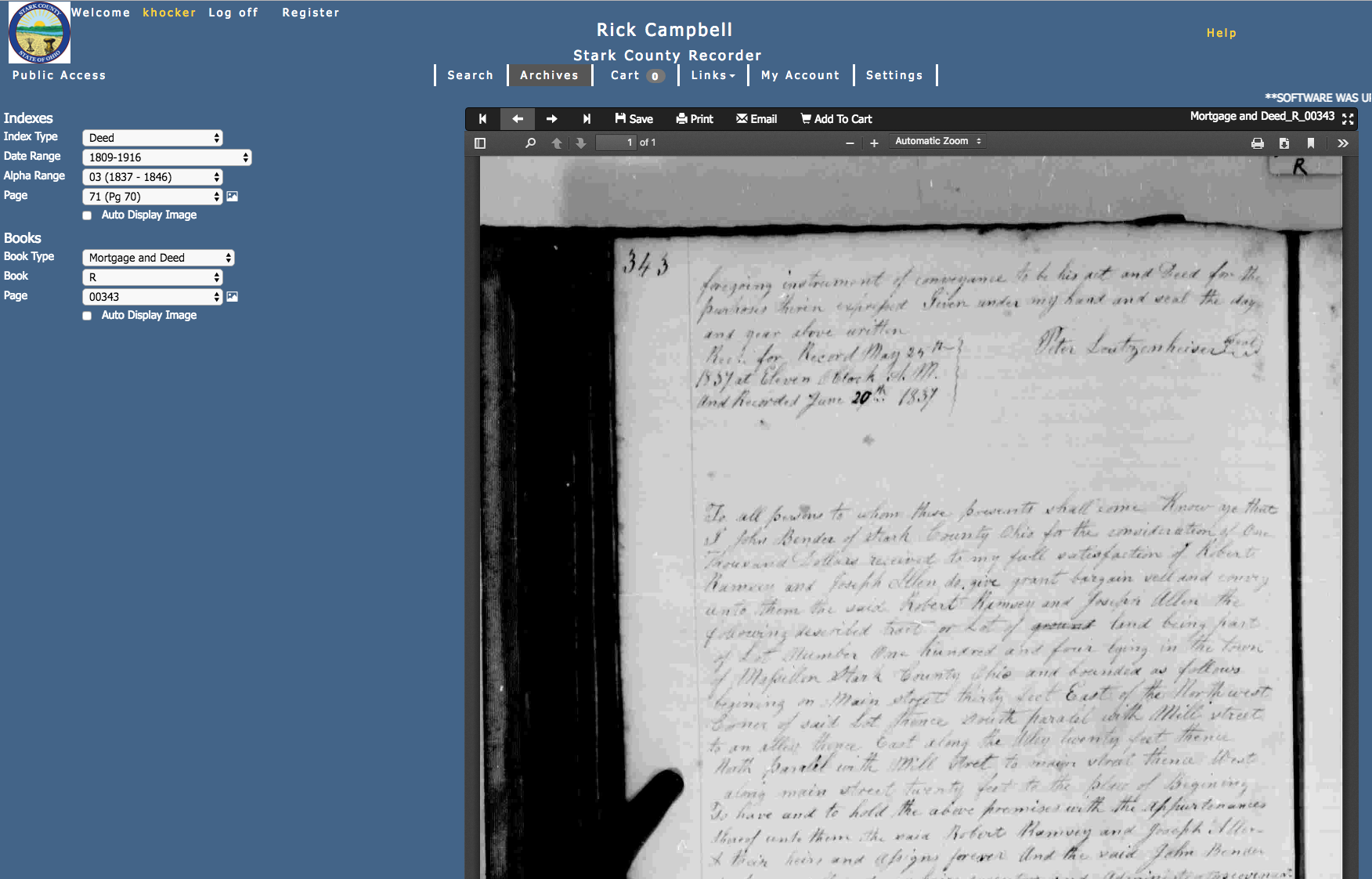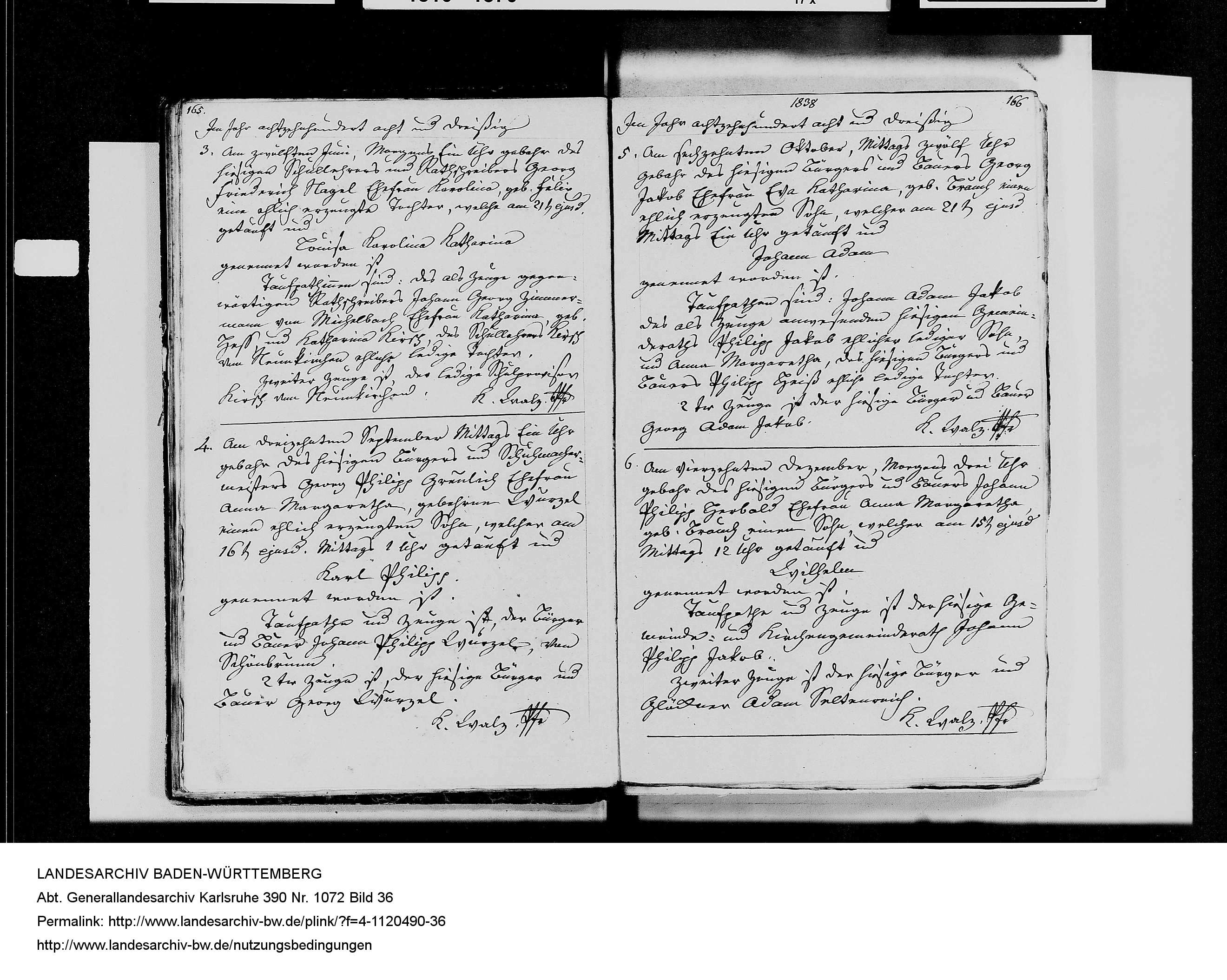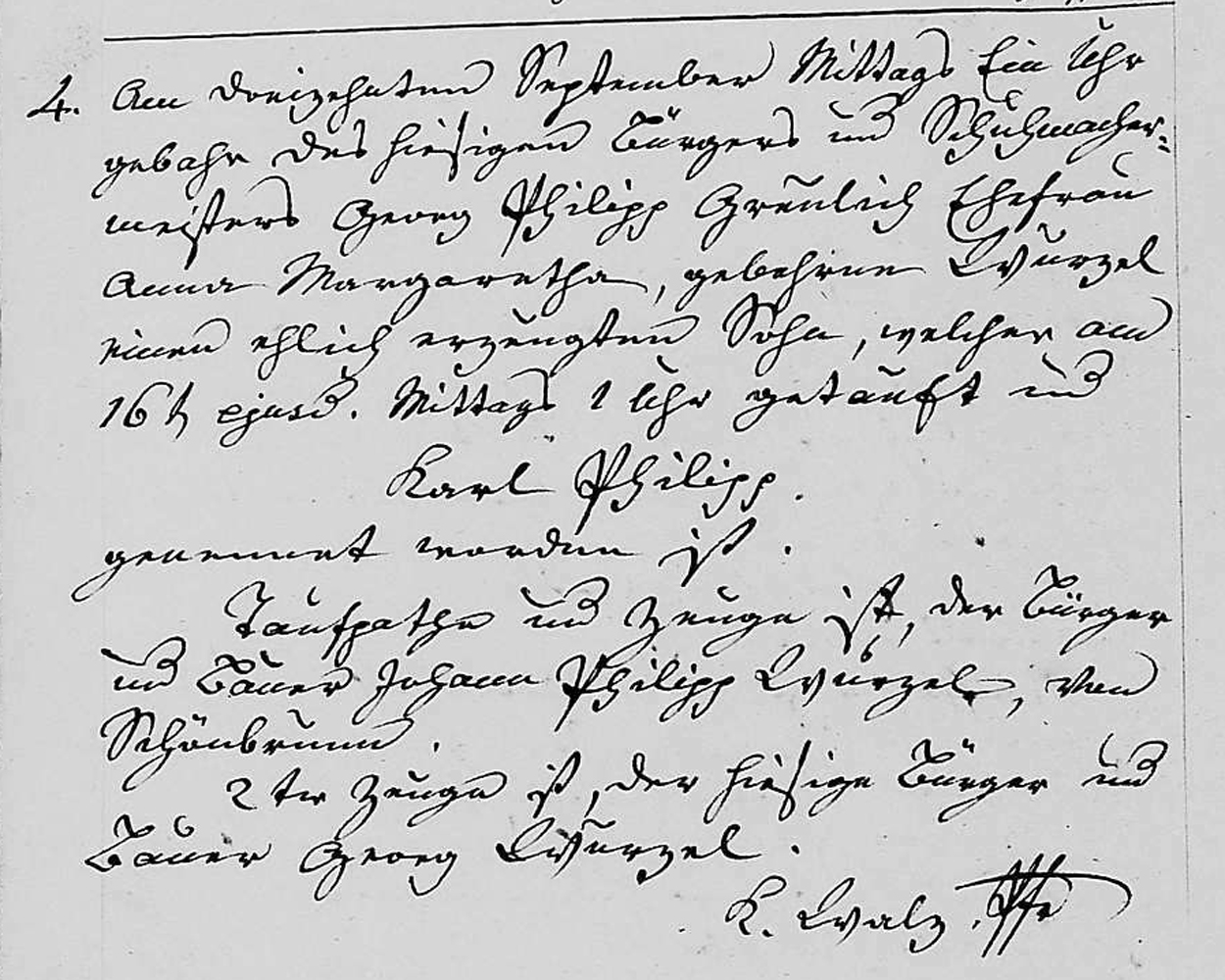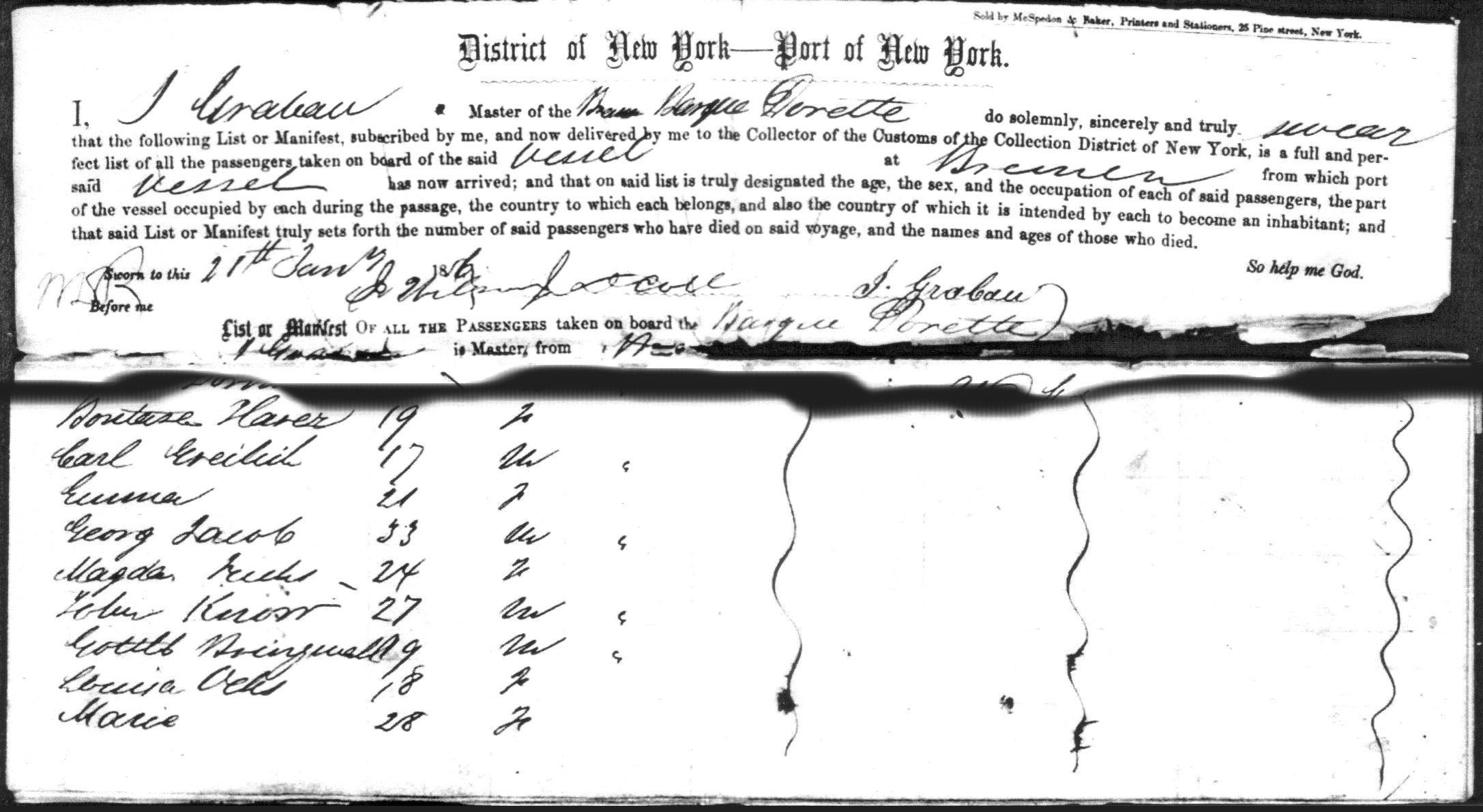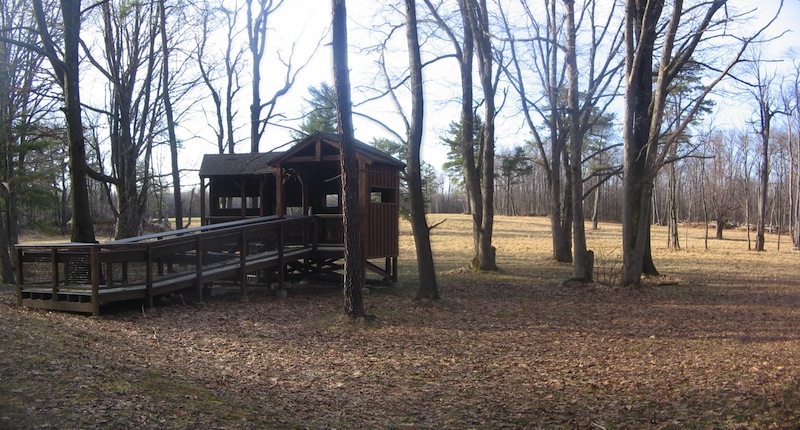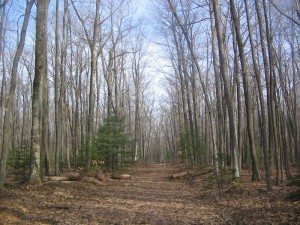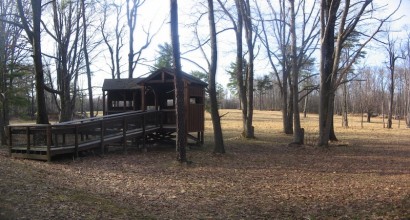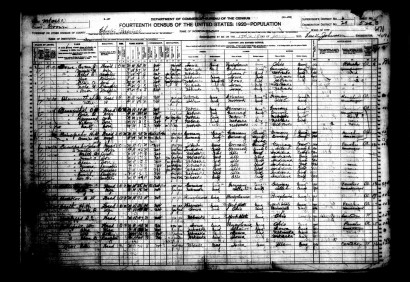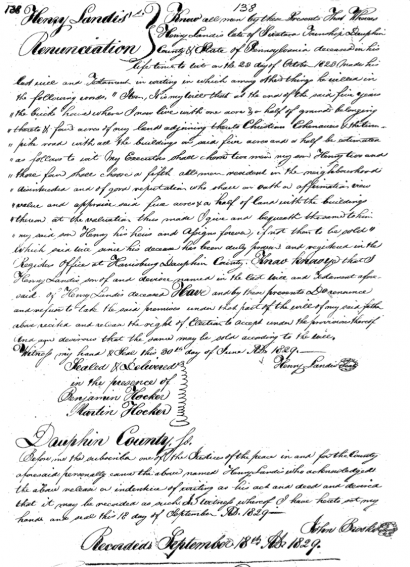On Monday, October 20th, 1845, Elizabeth Shearer and Elizabeth Bodine went to the office of the Register of Wills for Philadelphia County and swore that they witnessed George Hocker’s verbal will.
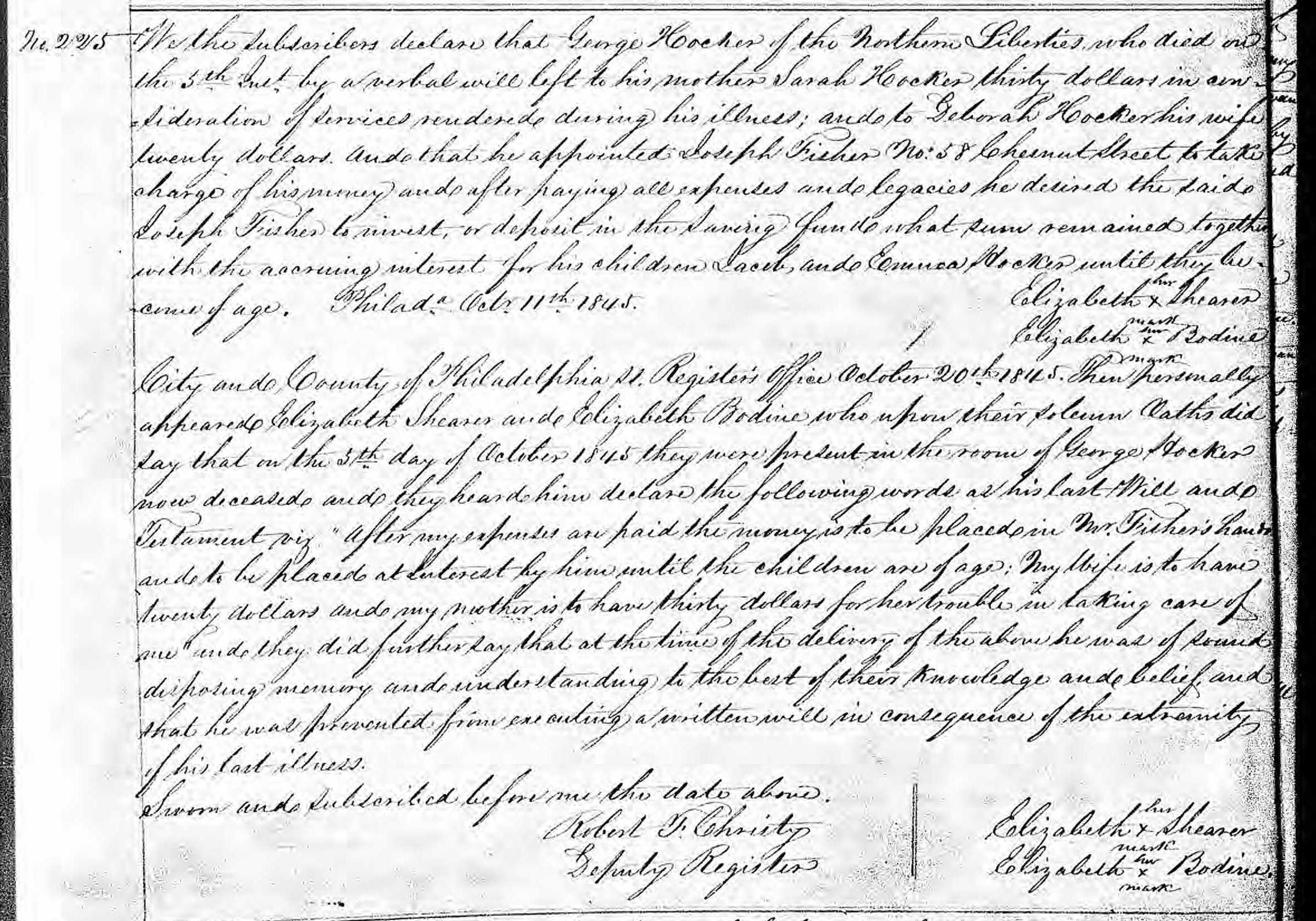
“We the subscribers declare that George Hocker of the Northern Liberties who died on the 5th Inst. by a verbal will left to his mother Sarah Hocker thirty dollars in consideration of services rendered during his illness; and to Deborah Hocker his wife twenty dollars and that he appointed Joseph Fisher No. 58 Chestnut Street to take charge of his money and after paying all expenses and legacies he desired the said Joseph Fisher to invest or deposit in the Saving fund what sum remained together with the accruing interest for his children Jacob and Emma until they come of age. Philada Octr 11th 1845
Elizabeth her X mark Shearer
Elizabeth her X mark Bodine
City and County of Philadelphia ss Register’s Office October 20th 1845 Then personally appeared Elizabeth Shearer and Elizabeth Bodine who upon their solemn oaths did say that on the 5th day of October 1845 they were present in the room of George Hocker now deceased and they heard him declare the following words as his last will and Testament viz. “After my expenses are paid the money is to be placed in Mr. Fisher’s hands and to be placed at Interest by him until the children are of age. My wife is to have twenty dollars and my mother is to have thirty dollars for her trouble in taking care of me[“] and they did further say that at the time of the delivery of the above he was of sound disposing memory and understanding to the best of their knowledge and belief and that he was prevented from executing a written will in consequence of the extremity of his last illness.
Sworn and subscribed before me on the date above.
Robert F. Christy | Elizabeth her x mark Shearer
Deputy Register | Elizabeth her x mark Bodine”
George Hocker
George Hocker, son of Jacob and Sarah (___) Hocker, was born 4 January 1805 in Montgomery County, Pennsylvania and baptized at St. Michael’s Lutheran Church in Germantown on 12 August 1805, sponsored by his grandfather Johann George Hocker. He married Deborah (___) sometime prior to 1825, probably in Philadelphia. George died 5 October 1845 of tuberculosis (phthisis pulmonalis).
George was, I believe, an innkeeper in Franklin Place, Philadelphia.
George and Deborah likely had children, as follows:
- Jacob Hocker, born 1825-1830 and died 12 June 1847 at his grandmother Sarah’s house on Market Street
- Emma Hocker, born October 1832 and died 12 December 1913 in Philadelphia
- Charles Lambert Hocker[?], born November 1833 and died 13 February 1834
- Daughter Hocker, born 1830-1835 and died prior to 1845
Jacob and Emma are the only two mentioned in his probate file.
Joseph Fisher
Joseph Fisher was born about 1796 in Philadelphia and died 19 February 1864. George’s mother, Sarah (___) Hocker, was Joseph’s aunt. Joseph made and sold mathematical and optical instruments in Philadelphia and inherited a considerable amount of money from his father.
When he wrote his last will and testament in 1862, Joseph made bequests to his cousins, including “Elizabeth Bodine daughter of my aunt Mrs. Sarah Hocker… and to Emma Hocker and Margaret Miller grand daughters of Mrs. Sarah Hocker.” He was also generous to the Philadelphia Library Company and the Pennsylvania Hospital for the insane, leaving them bequests in his will.
Elizabeth (Hocker) Bodine, wife of Daniel Bodine, was George’s youngest sister—and witness to his dying testament. Unfortunately, Sarah had two granddaughters named Emma—George’s daughter, of course, and his brother William’s daughter. I believe the money was eventually awarded to George’s daughter. Margaret Miller was the daughter of George’s sister Anna Maria (Hocker) Miller, wife of William Miller.
Elizabeth (Hocker) Bodine
Elizabeth, daughter of Jacob and Sarah, was born 26 November 1812 and baptized 27 September 1813 at St. Michael’s Lutheran Church. Her grandparents served as her sponsors. She died 17 November 1896 and was buried on the 21st at Laurel Hill Cemetery. She married Daniel S. Bodine by 1832 and had a daughter Sarah Ann Bodine in 1833. Daniel died young and Elizabeth spent most of her living living with family in Philadelphia.
Emma Hocker
Emma Hocker, daughter of George and Deborah, was born in October 1832 and died 12 December 1913 in Philadelphia. She remained single and worked as a tailor and housekeeper.
Margaret Miller
Maria Anna Hocker was born 25 July 1806 in Philadelphia and baptized at St. Michael’s Lutheran Church in Germantown on 27 September 1813, sponsored by her grandparents Johann George and Margaretha (Weidman) Hocker, and died 24 August 1850 in Philadelphia. She married William Miller and had a daughter Margaret, born 7 October 1835 in Philadelphia.
